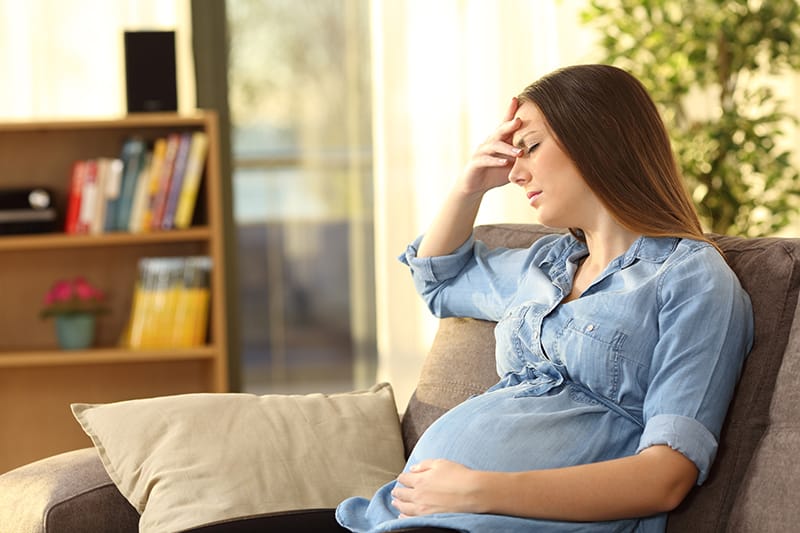Your body goes through a lot of changes during pregnancy. You’re focused on the health of your growing baby, so vein health is probably the last thing on your mind.
Changing hormones and the extra pressure brought on by pregnancy weight gain both play a role in the development of varicose veins.
While harmless, varicose veins can be itchy, uncomfortable or even painful. And that’s not something most women want to deal with. If you’re tired of your varicose veins adding another element of discomfort to your pregnancy, fill out our vein assessment form and start the road toward relief.
Why do pregnant women get varicose veins?
There are many factors. Elevated levels of progesterone — the hormone responsible for maintaining the pregnancy and preparing for milk production — has a side effect. It causes blood to pool in your lower body. As your body and the baby grow, blood flow is restricted further, increasing your risk for varicose veins. Oh, and also, genetics. Your genes are a major factor in deciding whether you will develop varicose veins or be one of the lucky women who avoids them.
How can I stop that from happening to me?
Because of all these factors, there may be nothing you can do to prevent varicose veins. But you can minimize their appearance and keep symptoms in check. If you’re not sure where to start, we recommend filling out our vein assessment form to connect with a vein specialist.
Arming yourself with the knowledge found in this article is also a good first step.
Varicose veins form from a blockage of blood flow that builds pressure in your legs. They are most common — and most visible — in your calves and thighs, but they can show up higher.
The increased venous pressure in your pelvic area can lead to varicose veins in your vulva. Known as vulvar varicosities, these bulging veins create additional pressure, leaving a bulge and causing soreness in your pelvic region.
Tips for Relief From Varicose Veins
If varicose veins do pop up, the key is to keep your blood moving. These tricks can help you keep your varicose veins under control:
- Cut back on the hours you spend standing or sitting. Believe it or not, both sitting and standing can lead to varicose veins. Light exercise that keeps your legs moving helps prevent blood from pooling up. Try to get up and get moving every 30 minutes or so.
- Wear compression stockings to manage the symptoms. There are full-length pregnancy versions that go higher than the calf and are especially helpful in the vulvar region — and they look like nylons so nobody will be the wiser. But they are pricey. Bike shorts provide similar compression in that area at a more affordable price.
- Try different positions to reduce pain and other symptoms. Lay on your left side to take the pressure off your main blood vessels. Elevate your legs above your heart to help your veins circulate blood. Avoid sitting cross-legged, which increases the pressure on your legs.
Do varicose veins go away once I have the baby?
Most of the time they improve a lot! Once things return to normal after you give birth, the varicose veins typically go away completely. The unsightly appearance and annoying symptoms are usually gone after six weeks. But like many of the body changes after pregnancy, varicose veins might unexpectedly stick around permanently.
You probably don’t want to hide your legs in pants and long skirts forever. And topical creams won’t cut it either, as a cream can’t reach the abnormal veins to provide any real results. Vein removal and minimally invasive procedures, such as radiofrequency ablation or the use of VenaSealTM medical adhesive, are the newest ways to control your varicose veins. But, permanent options like this shouldn’t be considered until you have seen a board-certified vascular surgeon.
If you didn’t have varicose veins before you were pregnant, chances are everything will return to normal after the baby. But if your varicose veins linger and your symptoms are bothersome, fill out our vein assessment form to find the best treatment option for you.
